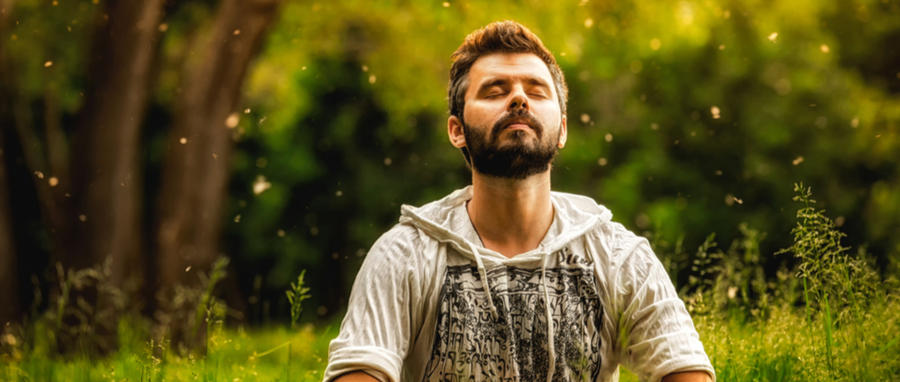A study recently published in PAIN by researchers at Wake Forest Baptist Medical Center has discovered an interesting truth to mindfulness. Mindfulness has been considered one of the great buzzwords of the early second millennium, but not without good cause. Plentitudes of research into the practice and the effects of practicing mindfulness have found positive results in an array of applications. Mindfulness helps reduce the symptoms of a number of mental and physical disorders, from mood disorders to chronic pain. Those without a disorder still find relief in their lives from any kind of stress. Mindfulness reduces stress to such an extent that it reduces inflammation on a molecular level which is caused by all kinds of stressors.
Fadel Zeidan Ph.D. wanted to find out if mindfulness and the positive effect mindfulness has on pain could be inherent rather than a practice. Meaning, he sought to determine if a more mindful person- someone who has a greater innate sense of mindfulness- feels less pain. He stated the findings of the study quite clearly: “We now know that some people are more mindful than others, and those people seemingly feel less pain.”
Of course the question becomes one of philosophical nature. Can one become more inherently mindful or is one’s nature of mindfulness absolute in their uniqueness? The pondering goes back to the argumentative roots of morality and the philosophy of ethics and whether or not someone is bad or good, and whether or not someone who is bad can become good. However, mindfulness has little to do with goodness or badness but rather awareness and presentness. Men in recovery from addiction who learn mindfulness skills and practice mindful meditation are evidence to the point: one can learn to become more mindful. Quite possibly, through the regular practice of mindfulness and the adoption of a mindfulness-centered lifestyle men can become more inherently mindful individuals. By way of the logic of the Wake Forest Baptist Medical Center study, that means men will have a greater tolerance to pain in their lives physically, but very likely emotionally and mentally as well.
Men who practice mindfulness and incorporate mindfulness skills into their daily lives create a stronger foundation of present positivity from which they can operate. Rather than standing on broken stilts attempting to hold back avalanches, men stand with solid footing, on solid ground, and turn avalanches into gentle snowfall. With the right training and lifestyle men with even the most severe of addictions can find a new way of living which enables them to take on all of life’s challenges without turning to a drug or a drink to cope.
From the mountains to the coastline, the possibilities of living a life without limits are endless. At Tree House Recovery in Orange County, California, we’re helping men recover their lives from addiction through innovative treatment designed to transform their lives inside and out. For information, call to speak with one of our graduates: (855) 202-2138






